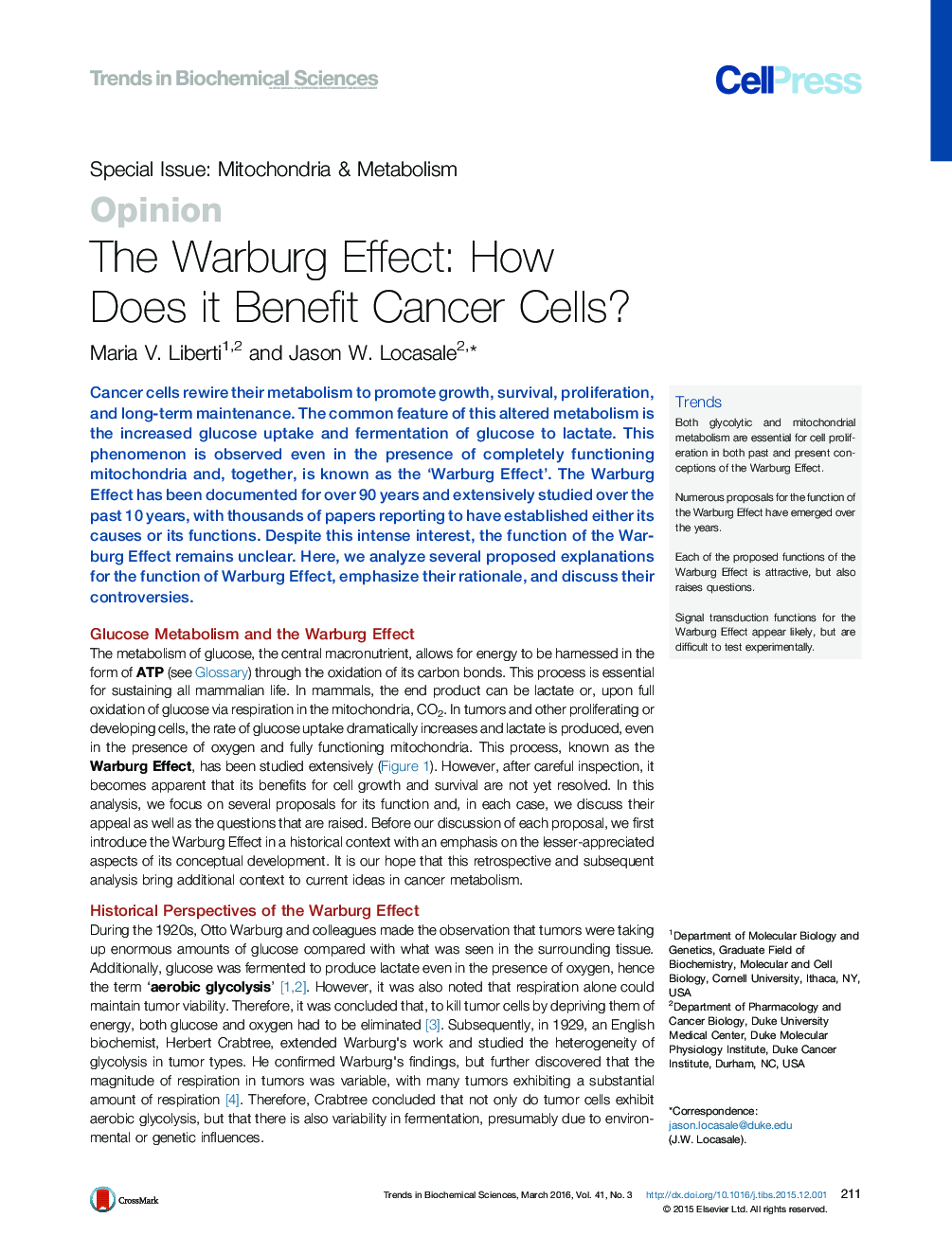| Article ID | Journal | Published Year | Pages | File Type |
|---|---|---|---|---|
| 2030472 | Trends in Biochemical Sciences | 2016 | 8 Pages |
Cancer cells rewire their metabolism to promote growth, survival, proliferation, and long-term maintenance. The common feature of this altered metabolism is the increased glucose uptake and fermentation of glucose to lactate. This phenomenon is observed even in the presence of completely functioning mitochondria and, together, is known as the ‘Warburg Effect’. The Warburg Effect has been documented for over 90 years and extensively studied over the past 10 years, with thousands of papers reporting to have established either its causes or its functions. Despite this intense interest, the function of the Warburg Effect remains unclear. Here, we analyze several proposed explanations for the function of Warburg Effect, emphasize their rationale, and discuss their controversies.
TrendsBoth glycolytic and mitochondrial metabolism are essential for cell proliferation in both past and present conceptions of the Warburg Effect.Numerous proposals for the function of the Warburg Effect have emerged over the years.Each of the proposed functions of the Warburg Effect is attractive, but also raises questions.Signal transduction functions for the Warburg Effect appear likely, but are difficult to test experimentally.
